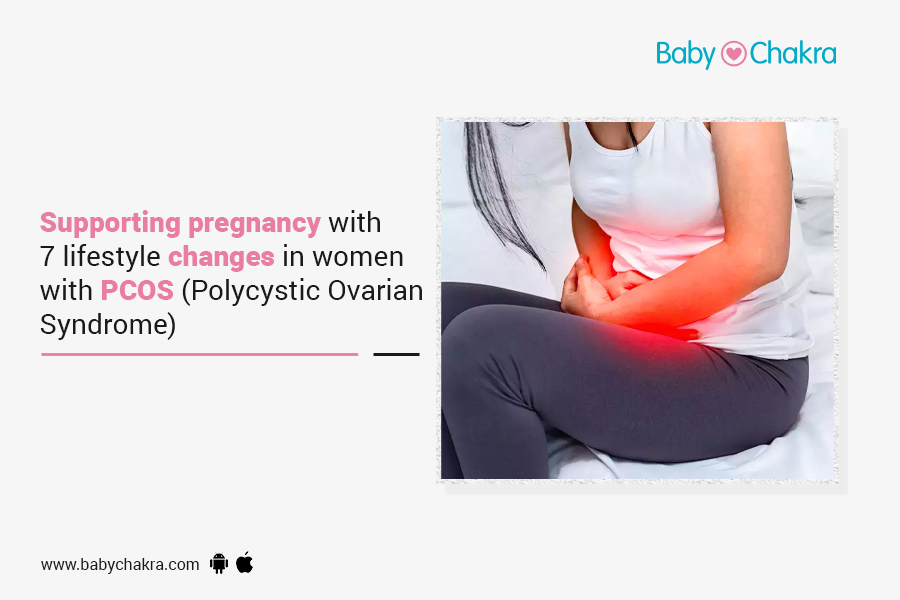
Supporting Pregnancy With 7 Lifestyle Changes In Women With PCOS (Polycystic Ovarian Syndrome)
28 Oct 2022 | 3 min Read
Seema Bhatia
Author | 29 Articles
PCOS is a condition caused by a hormonal imbalance that leads to the formation of enlarged ovaries with the presence of small cysts on their outer edges. PCOS is one of the most common causes of infertility in women.
The hormonal imbalance interferes with the growth and the release of the ovum leading to fertility issues. Weight gain, irregular menstrual cycle, acne, and hair loss are a few common symptoms of PCOS.
A lot of women think that getting pregnant with PCOS isn’t possible. But that’s a myth! With the right expert and treatment, it is possible to get pregnant even with PCOS.
A few lifestyle changes to follow when planning a pregnancy with PCOS include:
Lifestyle and dietary changes
- Having a balanced diet and maintaining a healthy weight is the first step towards managing PCOS. Obesity and having extra fats in the body have shown an association with PCOS.
- Switch to whole grains, beans, lentils, fruits, vegetables, and other healthy options, instead of junk and fatty foods.
- When trying to conceive, start your daily vitamins and other supplements, that help boost your fertility. Folic acid, vitamin B6, vitamin D, vitamin c, vitamin B12, coenzyme E, and vitamin E are a few of the supplements that are generally recommended by doctors to boost your fertility.
- Keep a check on your BMI (body mass index). It tells you the amount of body fat present in your body and gives you an idea of how much weight should you get rid of. The normal BMI ranges between 18.5 to 24.9 for healthy adults.
- Regular workouts or even regular brisk walking can help you maintain your weight. Keep yourself active throughout the day and have a planned exercise routine.
- Keep a check on your blood sugar levels. It is an important parameter to consider when trying to get pregnant. High blood sugar levels are also associated with pregnancy complications and birth defects. With the PCOS condition, high blood sugar might just increase the risk of such events.
- Maintain an ovulation calendar to have an idea about the upcoming period date and fertility window. In case of delayed ovulation or period cycle, contact your expert at the right time.
These changes should be strictly incorporated on daily basis to manage PCOS and when planning a pregnancy. In case, you are still facing difficulties with getting pregnant, get in touch with your fertility expert, and they might start medications and treatment needed to support your fertility.
A


Related Topics for you
Suggestions offered by doctors on BabyChakra are of advisory nature i.e., for educational and informational purposes only. Content posted on, created for, or compiled by BabyChakra is not intended or designed to replace your doctor's independent judgment about any symptom, condition, or the appropriateness or risks of a procedure or treatment for a given person.
